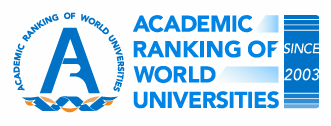
In its 2016 university rankings, the Academic Ranking of World Universities (ARWU) for the fourth year in a row ranked UC San Diego the #14 university in the world. At the same time, ARWU used its methology to analyze and rank many of the most important disciplines, including computer science, and CS at UC San Diego came away with an identical ranking, making it the #14 computer science program globally.
 It would have jumped higher if not for CSE receiving no points in two categories that favor older and wealthier departments. Points in the two categories were awarded to campuses with alumni or faculty who have won a Turing Award since 1971. (In other disciplines, Nobel Prizes are required, e.g., in economics, chemistry or physics, while mathematicians must have received a Fields Medal.) As a result, those Turing-dependent categories carry 25 percent of the weight in assessing the strength of computer science, and UC San Diego started with zero.
It would have jumped higher if not for CSE receiving no points in two categories that favor older and wealthier departments. Points in the two categories were awarded to campuses with alumni or faculty who have won a Turing Award since 1971. (In other disciplines, Nobel Prizes are required, e.g., in economics, chemistry or physics, while mathematicians must have received a Fields Medal.) As a result, those Turing-dependent categories carry 25 percent of the weight in assessing the strength of computer science, and UC San Diego started with zero.
On the other hand, CSE did much better on another weighted category, involving highly-cited researchers in computer science. Indeed, its score in this category pegs the UC San Diego program at #3 in the world (after Stanford and MIT) if you look only at highly-cited researchers. The two final categories involve the overall number of computer science research articles, and the percentage of papers published in the top-20% of journals in computer science. On both counts, UC San Diego fared better than many of the high-ranked universities. UC San Diego faculty published more than UCLA, Princeton, Harvard, Cornell or Caltech. For the percentage of papers in top-20% CS journals, CSE did better than UIUC, UT Austin, University of Toronto, USC and Carnegie Mellon -- even though all of those universities placed higher than UC San Diego in the overall computer science rankings. Indeed, UC San Diego has the highest-ranked computer science program of all universities with zero Turing Award winners among faculty and alumni.

